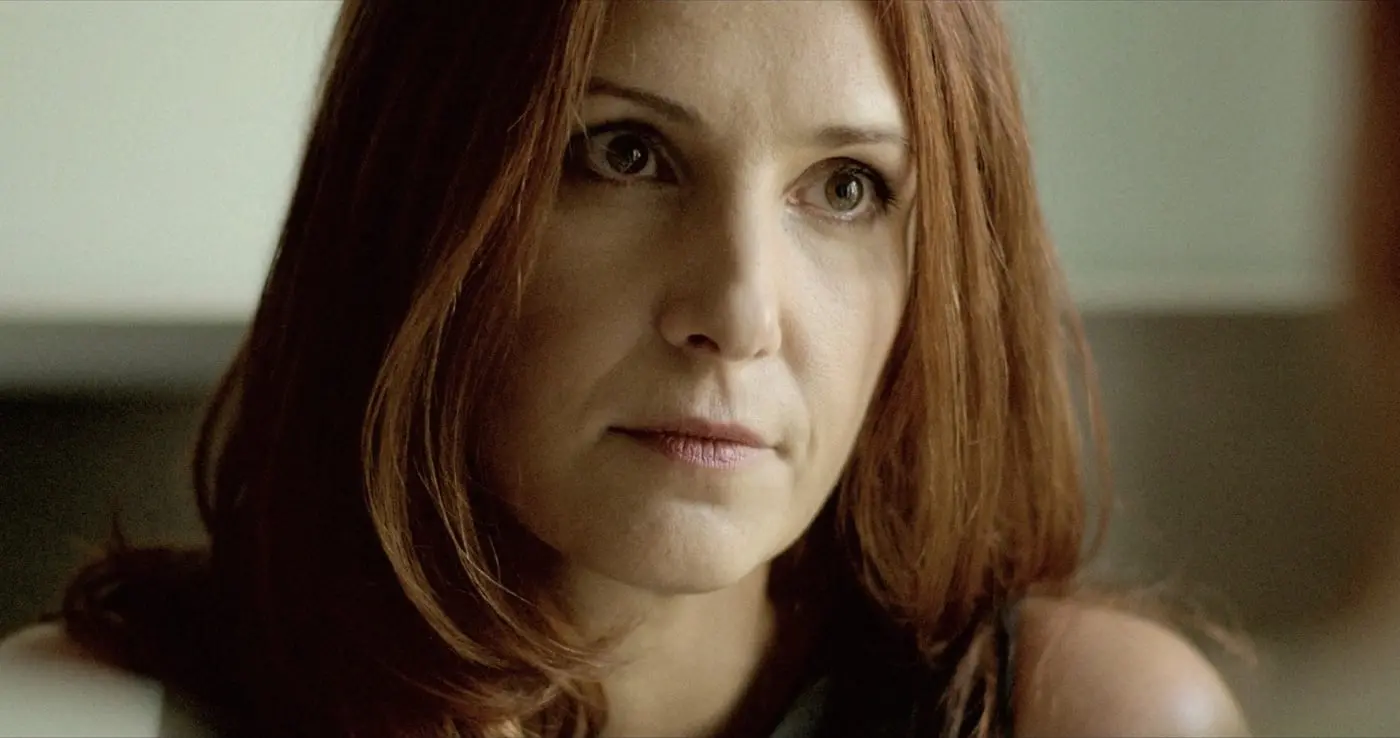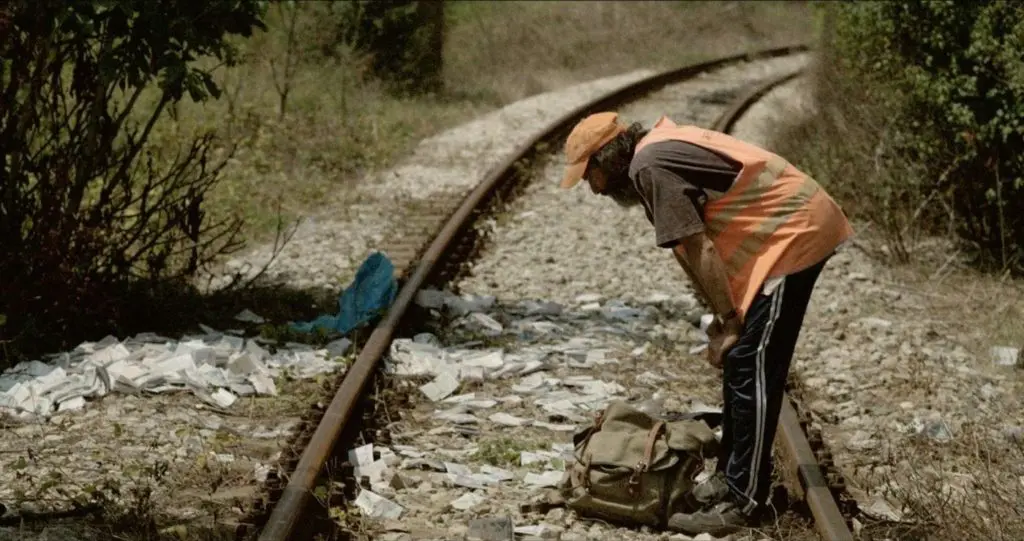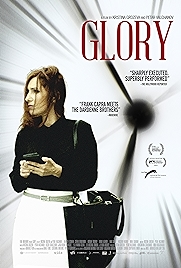Slava is a brand of workaday watches once common behind the Iron Curtain, and certainly in Bulgaria where the 2016 movie Glory (Slava in both Russian and Bulgarian) is set.
Like The Lesson (Urok), the previous film by Kristina Grozeva and Petar Valchanov, it’s a tragedy done as a kind of dry comedy of manners in which the ramifications of a petty foible, a tragic flaw on a tiny scale, are worked through to a pitiless conclusion.
The Lesson’s Margita Gosheva and Stefan Denolyubov also star, she as a PR wonk who works at the ministry of transport; he as the solitary railway worker who finds a big cache of money on the railway line one day and selflessly does the right thing by telling the authorities. Needing a PR stunt to change the narrative currently circulating about the ministry – it’s corrupt – Julia seizes on Tzanko’s story and attempts to turn this withdrawn, stuttering man into the modern equivalent of an old-school Soviet hero of the revolution. A media blitz follows, with Tzanko interviewed for TV and invited to the ministry where his old watch – a Slava, given to him by his father – is taken off him. Instead he is publicly presented with a “much better” new one (a piece of cheap digital crap), has his picture taken being congratulated by the minister and is then expected to run off home like a good boy.
And he would have done if Julia hadn’t in the process mislaid or lost his old watch, a fact which Tzanko will not let lie, even though he is by nature a retiring sort happiest in the company of his pet rabbits.
Working through the escalating consequences sparked off by the mislaid watch forms the bulk of the film, and though the watch is Tzanko’s, the tragic flaw is very much Julia’s. She’s simply too grand and full of her own self-importance to take this nobody seriously. When we first meet her she’s at the fertility clinic, where she pauses the doctor mid-flow to take a call, then pauses him again to make a call on her special work phone – two phones is one too many.
The two people could not be more different. Julia, power-dressing in clothes slightly too tight for her, works in communications; Tzanko, unkempt and shabby, has a stutter that makes communicating almost impossible. One freezing her embryos; the other cuddling up to a fertility symbol.
It’s not hard to work out where the writer/directors’ sympathies lie and this is reflected in the shooting style, with Tzanko getting the best of the glamour shots. Even though the entire film is done in realist, shoulder-high almost-documentary style, Julia’s settings are cold and aseptic, Tzanko’s home, while basic, is bathed in warm light.
There’s an obvious critique of status relationships going on here, with the added benefit, for Bulgarian audiences, of a cold hard look at life inside the official bureaucracy, which is operating to a very large extent using the Soviet-era playbook. Even so, and this is a feature of contemporary Bulgarian films compared to those from neighbouring Romania, the attitude to the old Communist regime is far more ambivalent – that old Slava watch might have been a bit basic, but at least it kept good time.
For non-Bulgarian audiences there’s slightly less to get hold of, though watching the consequences of silly bureaucratic bullshit playing out does have a familiar feel if you’ve seen Armando Iannucci’s TV series The Thick of It (or In the Loop, the movie spinoff).
It’s a snowball of a film gradually picking up speed (and mass). Unlike The Lesson, which had us locked in to its structure of grim inevitability and escalating panic, Glory takes its time announcing what it’s really about and then seems not entirely sure how far it wishes to push its premise into thriller territory. Perhaps concerns about realism are getting in the way.
Even so, there’s plenty to like in this second of Grozeva and Valchanov’s “newspaper clippings trilogy” of films inspired by real stories and it whets the appetite for the third (The Triumph). In the interim there’s also Grozeva and Valchanov’s The Father (not the Anthony Hopkins one), which in 2019 first introduced the world to the fearlessly brilliant Maria Bakalova, breakout star of Borat: Subsequent Moviefilm. Good things are coming out of Bulgaria.
Glory (aka Slava) – Watch it/buy it at Amazon
I am an Amazon affiliate
© Steve Morrissey 2021


